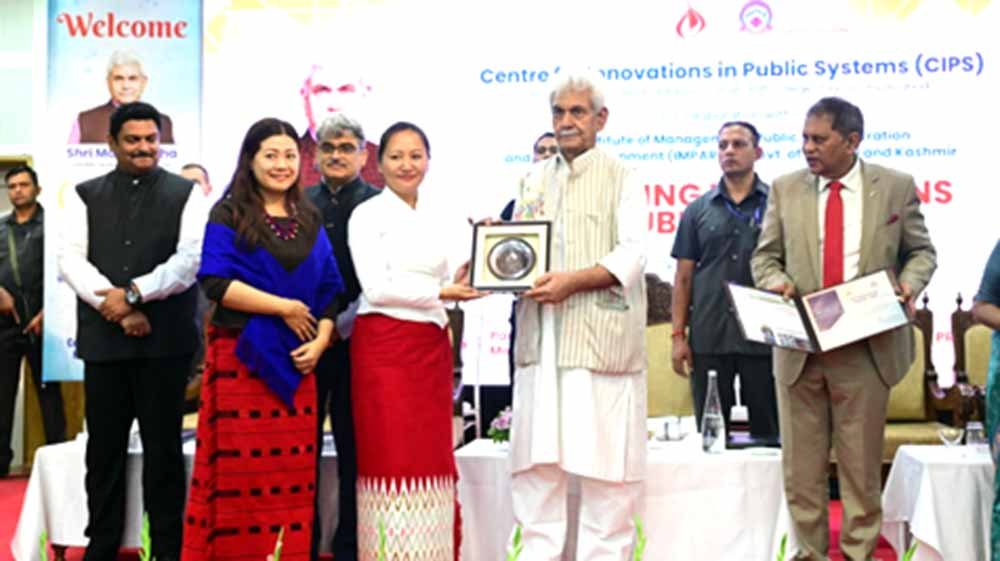The Performance Incentive Grants (PIG) programme, part of the NECTAR project under the Department of School Education, has been awarded the prestigious CIPS Innovation Award 2024 in the education sector. This recognition comes after a competitive selection process, where 226 applications were received nationwide. Of these, 83 were shortlisted, and 34 underwent spot studies, with 21 projects across various sectors receiving awards.
The award was accepted by the NECTAR team, led by joint secretary of School Education and Deputy Project Director of NECTAR, Avelu Ruho, during the CIPS Awards Ceremony 2024 held in Srinagar, on August 22.
In his address, Lieutenant Governor, Jammu and Kashmir, Manoj Sinha, emphasized that “people’s voice must be the soul of government policy,” and that policymaking should be grounded in the needs and participation of citizens. He added, “A file is not just a piece of paper, but it has the potential to transform the lives of citizens.”
Chief Secretary of Jammu and Kashmir, Atal Dulloo also praised the initiative, highlighting that innovation in governance has the power to simplify lives and achieve in years what legislative processes cannot in decades.
The Centre for Innovations in Public Systems (CIPS), Hyderabad, a national body of the Administrative Staff College of India, conferred the award. CIPS seeks to foster innovative public system practices that drive positive change across governance structures in India.
The PIG programme has benefitted 1,914 government schools in Nagaland, amounting to 86.13 crore in funding. This initiative has empowered School Management Committees (SMCs) and School Management and Development Committees (SMDCs) to take a bottom-up, needs-based approach in planning and managing their resources. The flexibility of the programme has allowed schools to customize fund usage, strengthening community engagement and improving the overall learning environment. This model emphasizes community-driven governance, making the community integral in safeguarding public institutions.
PIG programme under Dose wins CIPS Innovation Award
DIMAPUR

